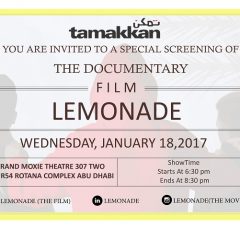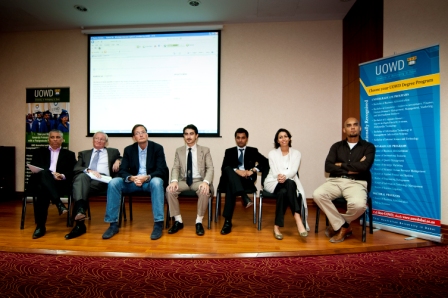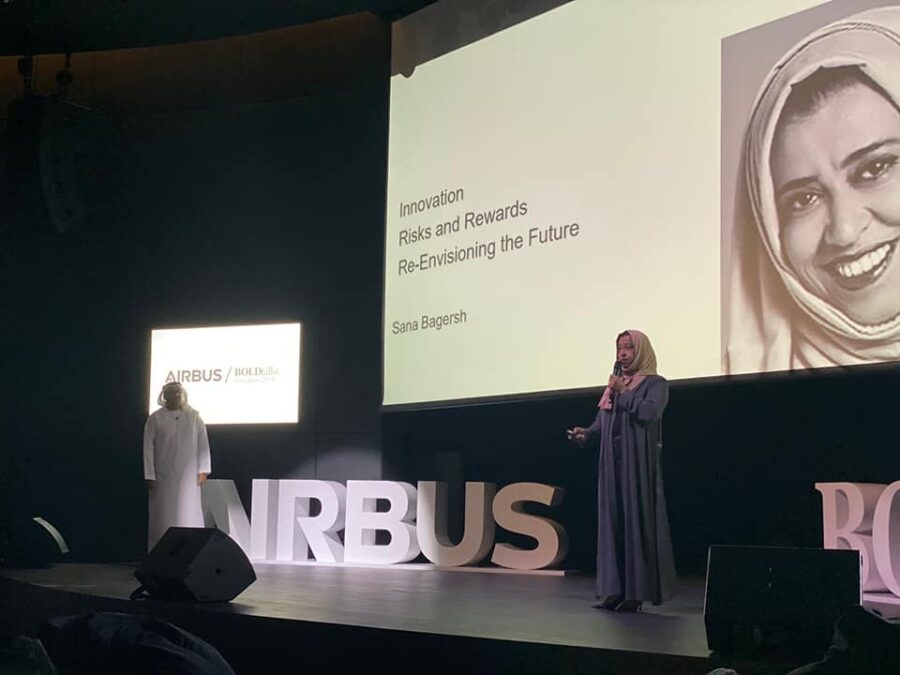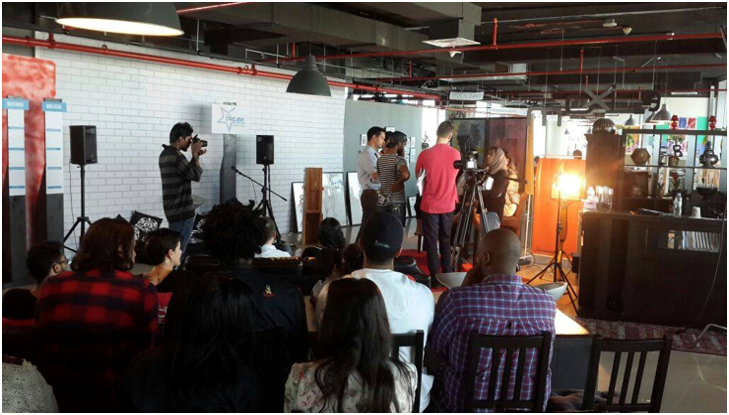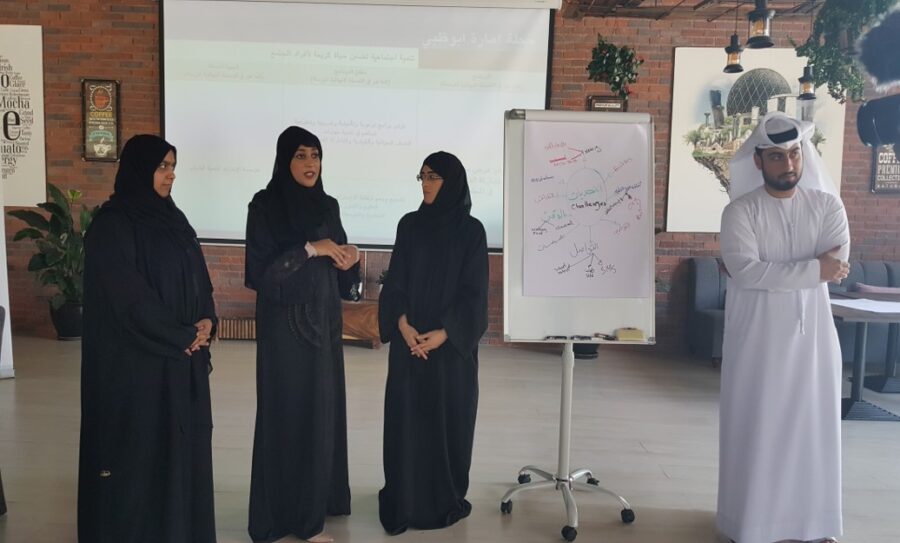An Inspiring Event in Seattle, USA
‘Interculturalism as a Path to Peaceful Coexistence” Date: June 15 at 4pm Location: Levant Cafe in Gilman Village in Issaquah, Washington Join us for a talk aout compassion and hope... In these challenging times, when values and principles are being questioned, our event underscores the importance of intercultural dialogue in promoting peace and unity. The event, organized by Tamakkan and Alma’idah will be an intimate gathering that explores the transformative power of bringing together people from diverse cultures and backgrounds to build understanding, promote empathy and reinforce shared values. By fostering an environment of mutual respect and understanding, we can build more compassionate communities, and contribute to global healing. About Al Ma’idah (from www.almaidah.org) Al-Ma’idah was established by James Rayment in Seattle Washington. “In Arabic,Al-Ma’idah means ‘the Table’ but the word means more than a piece of wood, it conjures an image of a table filled with food and conversation. We have been working on building bridges between the Christian world and the Muslim world for 5 years and have been able to facilitate meaningful conversations and real friendships between people of different beliefs and cultures. Again, we are an unapologetically Christian organization and believe that Jesus is the only way to God, but that doesn’t hold us back from talking to people who think differently, it actually enhances the conversation. Anyone who has come to our events, or watched some of our podcast will see quickly, that we are eager for Muslims to represent themselves in their own words. As people who believe in truth, we don’t have to be afraid of learning about different ideas and interacting with people who think differently. You will find our culture is free from coercion, but encourages persuasion, as we have seen many friendships between Christians and Muslims who disagree deeply, but share mutual respect. God is the one who changes hearts and minds. Our job is to represent what we believe to be true and show hospitality.” REGISTER Your name Your email Your message...
A Tamakkan Special: Film Screening of “Lemonade”
Dedra L. StevensonFilm Director, LemonadeLemonade is a short documentary about home schooling an adult with Autism in the UAE, in spite of the lack of services or support. It’s one family’s inspiring story of how they made the best of a bad situation and made their adult son, Ibrahim, very happy and productive. All people who suffer from mental disabilities should enjoy a happy and productive life which gives them a sense of purpose and belonging, and Ibrahim is a perfect example of how life can hand you lemons, but you can find the determination to turn it into Lemonade.Dedra L. Stevenson is an American born Emirati author and public speaker. Her trilogy, The Hakima’s Tale, is a fantasy fiction story set in Emirati culture and based on the lore of the region. Ms. Stevenson also conducts a vast number of writing workshops throughout the region, inspiring the writers of tomorrow. She lives in Sharjah with her husband and four children, and is an advocate for spreading Autism Awareness throughout the region.Promoted by Tamakkan About US EmbassyU.S. Embassy Abu Dhabi is dedicated to strengthening US-UAE partnerships in diplomacy, commerce, trade, regional security, education, art, and culture. The Embassy engages with a wide range of local partners to encourage broader and deeper understanding between the people of the United States and the United Arab Emirates. http://abudhabi.usembassy.gov/ STAY CONNECTED!Like us on FacebookFollow us on...
“How to Find Investors’
In collaboration with the University of Wollongong, Tamakkan organized a conference on “How to find investors and start a business. The event was attended by students and faculty from universities, and was open to business professionals from the government and public sector.
GETTING THE RIGHT ANSWERS
A multinational client approached us recently with a request for market research. The client had a sophisticated research platform that they use successfully in North America, and they wanted to replicate the results here. After studying their methodology and the survey form, we advised them (delicately) that they had the wrong survey, the wrong platform, the wrong environment and the wrong audience. We told them that we would be able to deliver the mechanics of the requirement (ie gather the information for them using their tools), but the data would be virtually useless to them. The client’s survey (a proprietary, “signature” questionnaire) was eight pages long, with complicated rating scale questions (very pleasant, somewhat pleasant, neither pleasant nor unpleasant, somewhat unpleasant, very unpleasant etc….) that needed to be translated into Arabic, Urdu and Farsi…and had to be administered via phone or email across a few markets in the Gulf. We explained that the cultural, demographic, linguistic, social and indeed, geographical, dynamics of this region required considerable modification to both the survey and the methods of gathering the data. Eventually, we worked together to deconstruct the “proprietary, signature questionnaire” into simple questions with direct answers, that maintained conformity and integrity across multiple languages. And we mapped out the locations that provided the most representative sampling possible and created a mechanism whereby the data would be gathered at the most productive times. The one universal truth in market research is that people everywhere do not like to participate in research. They do not like to be called at dinner time by a chirpy telemarketer asking them how they dispose of their household waste, and even less by a clipboard wielding interviewer promising “just a few questions”… We tried during the market research process with the client to guard against “interview bias,” a problem doubly compounded by the fact that we were dealing cross culturally and in multiple languages. We all know that it is virtually impossible to eliminate bias, but the most important thing is to be aware of these biases and to minimize them as much as possible. We identified certain biases that we needed to be especially mindful of in this instance. One was “moderator acceptance bias,” and this is where the respondent tells the questioner what he or she wants to hear, another is “leading acceptance bias” and this is where the respondent asks for explanation and the questioner starts putting words in the respondent’s mouth, and most importantly the “misunderstood question bias” and this is where the respondent doesn’t understand the question because of a different interpretation of the question due to the way it relates to...
HOW TO DEVELOP AND REFINE YOUR COMPANY’S MISSION AND VISION STATEMENTS
So you’re thinking of developing your vision and mission statements, or refining your existing ones? Good for you. But you need to think… is this something genuinely integral to your company’s business strategy, or just something that will look pretty in a plaque in your reception area? Unfortunately, a large number of companies (and some we confess are our own clients) have nice sounding vision and mission statements that don’t really filter through their organization and have diddly squat to do with their “raison d’être” (reason for being). You probably know some yourself… their vision/ mission states ‘customer service’ and then you call them and get a dumb receptionist who puts you on hold for 10 minutes and then forwards you through three departments before you finally get a dead dial tone. That’s why you should ask yourself if your vision and mission statements are for real. If you’re not really sure, then grab yourself a couple of aesthetically pleasing mission and vision template statements off internet sites (some offer them free), but if you’re serious then read on… Visions should be articulated at the top, and they should define why the company is in business. The vision should include broad intent and aspirations for the future. It should have an enduring quality and have the ability to inspire. Remember this will be the battle cry that will rally your entire company to fight for you, so take time to do it well. Where you get into more concrete purpose and direction is in the mission statement. It gives guidance to the company and motivates staff by defining priorities. If you want a kick-behind mission statement then get it as close to specific as you can, and make it relevant to your stakeholders, including customers, shareholders, employees, partners and vendors. So what should you keep in mind when drafting your mission statement? In our client strategy workshops we emphasize the need for a key theme around which everything revolves. “Everything” includes four elements: value, realism, specificity and optimism. The flavors of mission statements vary depending on the company. Yours will depend on the industry you’re in and the type of company you want to be. Some companies choose short term goals and then tweak their mission statement frequently, and some state longer-term objectives. In today’s climate, and especially in rapidly evolving industries (say technology), we recommend short-term goals that are adjusted at least quarterly to be able to address new business opportunities. (Some brash top end internet companies even do it monthly!) Companies in more static environments also need to review and revise their vision and mission statements periodically....

